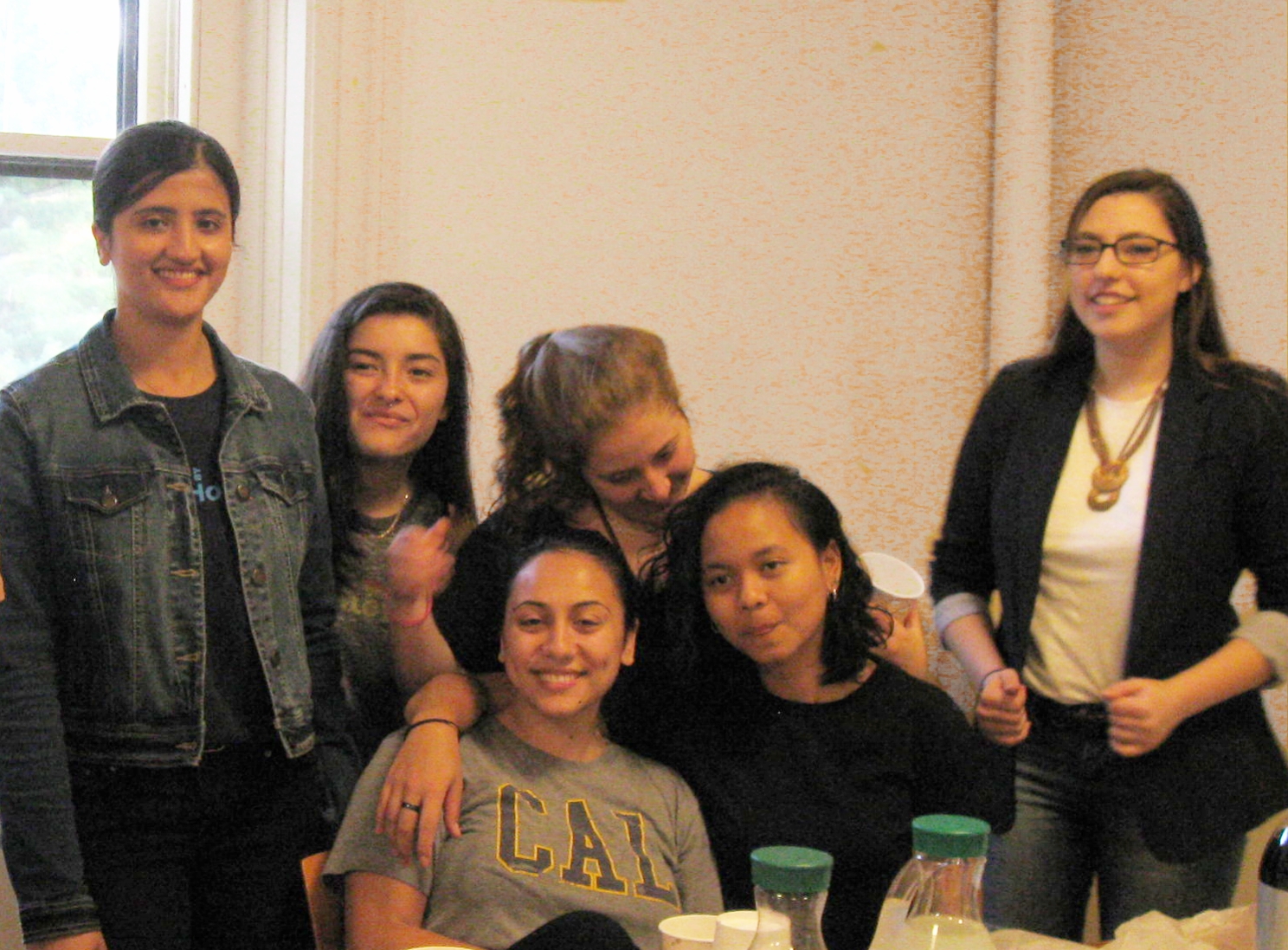Photo by Emma Himmelberger ’20
Porter Hall Community Advisor Eeman Abbasi ’19 (left) with Porter Hall residents at a floor event last week.
BY AVA BLUM-CARR ’21
Mount Holyoke’s community advisors (CAs) and senior community advisors (SCAs) scored a major victory this year in securing a significant increase in their salary, putting the college on par with most other institutions.
At many colleges, fully-waived room and board is the norm for student residential workers. Mount Holyoke does not provide this level of compensation, but a 40 percent salary increase has assured many CAs that the volume of work they do is being recognized by the administration and the community.
Last year, a group of CAs and SCAs joined Mount Holyoke’s Director of Student Life Rachel Alldis in forming a committee to discuss a potential salary increase. Students researched the policies of other colleges regarding compensation for residential workers, looked into labor laws, and exchanged ideas about what changes Mount Holyoke could enact.
Kim Foreiter ’19, the current SCA of Prospect Hall, said that unwavering support from the Office of Residential Life was a key factor in the movement’s success. “Rachel heard out every single one of us on that committee and took everything to her superiors,” said Foreiter. “We were a united front.”
Regarding the commitment their job requires, CAs spoke overwhelmingly positively. “My floor is awesome and I have loved working with Residential Life,” said Sarah Ratzlaff ’20, one of 1837 Hall’s CAs. “However, I won’t deny that living where you work is hard.”
“The thing about being a CA or SCA that people don’t expect is that we are essentially living and working in a fishbowl,” said Gabi Myca ’19, SCA of 1837 Hall. In addition to the concrete tasks of planning an array of events and installing monthly bulletin boards, she said, most CAs are constantly reaching out to residents, mediating conflicts and checking in. “It feels like we are always on-duty and working,” said Myca.
Before this year, CAs earned a yearly salary of $2100, incrementally paid out in bi-weekly stipends. SCAs earned $2500. The new base salary is $3500 for CAs and $4500 for SCAs.
“This is my first year being a CA, so while I appreciate the pay raise, I am sure those who are returning CAs appreciate it a lot more. I can’t imagine working for less that what we are getting paid now,”
said Ratzlaff.
According to Rachel Alldis, determining a salary for CAs based on hours worked would be far too difficult. “It’s a really hard job to quantify,” said Alldis. In her experience, colleges that don’t waive room and board for residential workers are uncommon.
“I worked at NYU and Northeastern, and room and board was their compensation,” said Alldis. She also worked at Syracuse University and Emerson College, where the same is true. Within the Five College Consortium, resident assistants at UMass and Smith College receive a full waiver for room fees or a stipend equivalent to those fees. At Hampshire College, RAs receive a grant that knocks off half of their housing fee. Amherst College resident counselors receive a biweekly stipend comparable to Mount Holyoke’s.
When asked whether the new salary puts Mount Holyoke on par with similar colleges, Alldis responded, “We’re getting there.” One potential effect of a higher salary is an increased incentive for students to apply to be CAs.
“I do think we’re closer to paying them what they deserve for the amount of work they’re putting in,” said Alldis. “We’re in a much better place than we were, and I think that our recruitment efforts will likely bear that out.”
But for those involved in negotiating for a better salary, the satisfaction of receiving one runs deeper than material compensation. For Myca, the salary increase showcases the importance of CAs and serves as an affirmation of their time and effort.
“It’s a huge recognition from the College of the importance of the position and its value. I’m incredibly appreciative of everyone for hearing us out,” said Alldis. “I’ve always loved the student leaders that we’ve hired. I’m really happy that I can give them closer to what they should receive for the incredible stuff they do.

